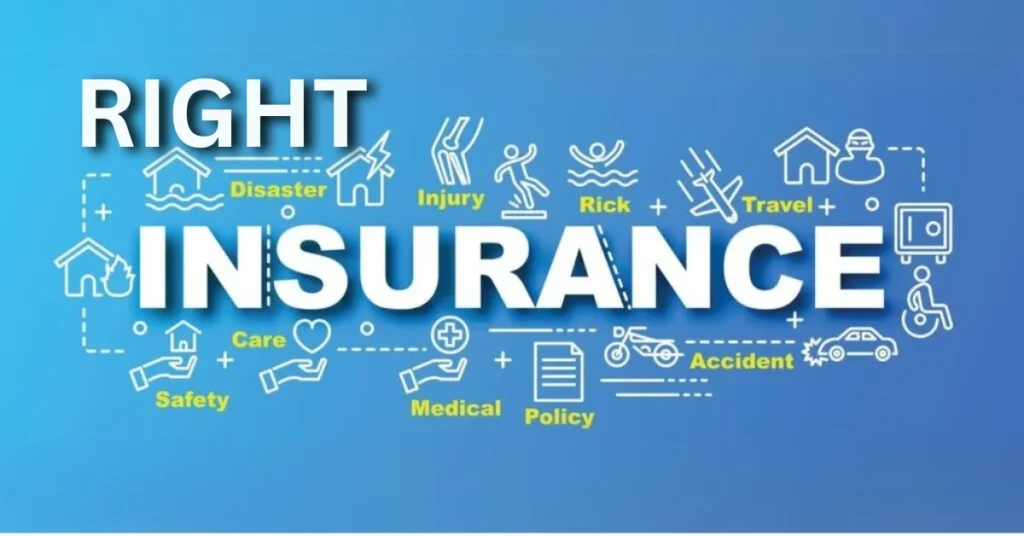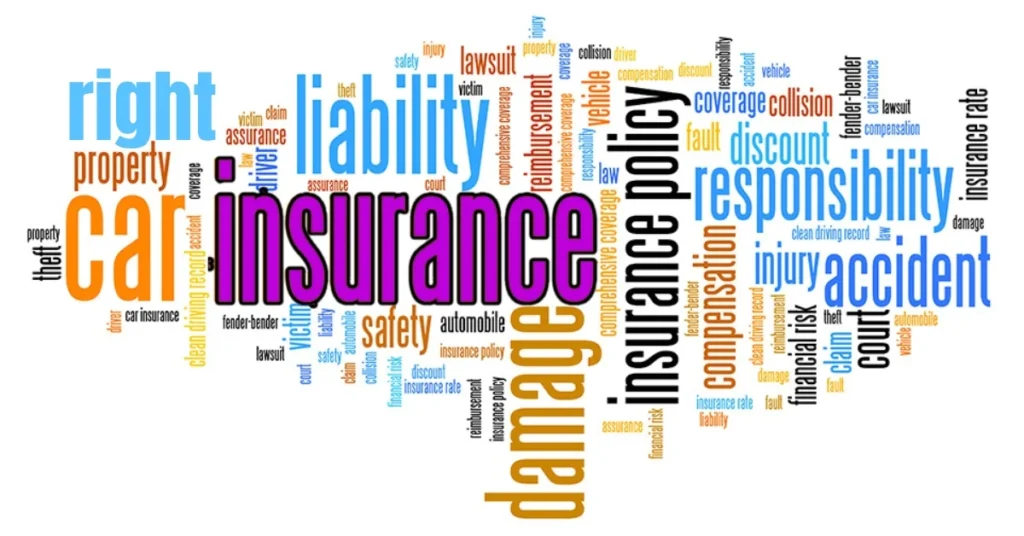
Choosing the right insurance is key to protecting your finances and securing peace of mind. With many options available, it can be challenging to decide which policy suits your needs best. This guide will provide a detailed, step-by-step approach to understanding different types of insurance and how to select the Right Insurance Lumolog for you and your loved ones.
What Is Insurance?
Insurance is a financial product that protects against potential losses or damages. By paying regular premiums, you gain access to coverage that helps manage the costs associated with various risks, such as accidents, health issues, or property damage.
Types of Insurance and What They Cover
Here’s a detailed look at the most common types of insurance and how they can benefit you:
Auto Insurance
Auto insurance protects you from financial losses related to your vehicle. It is not only a legal requirement in many places but also essential for protecting yourself and others on the road.
- Liability Coverage: This is required by law and covers damages and injuries you cause to others in an accident. It includes property damage and bodily injury liability.
- Collision Coverage: Helps pay for repairs to your car if you’re involved in a collision, regardless of who is at fault.
- Comprehensive Coverage: Covers non-collision-related incidents, such as theft, vandalism, or natural disasters.
- Uninsured/Underinsured Motorist Coverage: Protects if you’re in an accident with a driver who either has no insurance or insufficient insurance.
How to Choose: Consider your vehicle’s value, your driving habits, and your budget. If your car is worth a lot, comprehensive collision coverage can be very beneficial.
Home Insurance
Home insurance protects your home and personal belongings from loss or damage. It also provides liability coverage if someone is injured on your property.
- Dwelling Coverage: Covers repairs or rebuilding costs if your home is damaged by covered perils such as fire or windstorms.
- Personal Property Coverage: Protects your belongings like furniture, electronics, and clothing from theft or damage.
- Liability Protection: This covers legal costs and damages if someone is injured on your property and sues you.
- Additional Coverage: You might need extra protection for specific risks, such as floods or earthquakes, depending on your location.
How to Choose: Evaluate the value of your home and possessions. If you live in an area prone to natural disasters, consider additional coverage for those risks.
Health Insurance
Health insurance helps cover medical expenses, including doctor visits, hospital stays, and prescription medications.
- Health Maintenance Organization (HMO): Requires you to use a network of doctors and hospitals. Often has lower premiums and out-of-pocket costs.
- Preferred Provider Organization (PPO): Offers more flexibility in choosing healthcare providers and does not require referrals for specialists.
- Exclusive Provider Organization (EPO): Covers services only within a network, except in emergencies.
- Point of Service (POS): Combines features of HMO and PPO plans, allowing some out-of-network care with a referral.
How to Choose: Look at your healthcare needs, preferred doctors, and medications. Compare the costs of premiums, deductibles, and out-of-pocket maximums.
Life Insurance
Life insurance provides financial support to your loved ones in the event of your death. It can cover expenses like funeral costs, and debts, and provide income replacement.
- Term Life Insurance: Provides coverage for a specified term, such as 10, 20, or 30 years. It is generally more affordable.
- Whole Life Insurance: Whole Life Insurance Offers lifelong coverage with a cash value component that grows over time.
- Universal Life Insurance: Provides flexible premiums and death benefits, with a cash value component that earns interest.
- Variable Life Insurance: Includes investment options, allowing the cash value to grow based on market performance.
How to Choose: Determine the amount needed to cover your family’s future expenses and debts. Consider how long coverage is needed and whether you want a cash value component.
How to Evaluate Insurance Policies
When comparing insurance policies, consider these important factors:
Coverage Limits
Ensure the policy provides enough coverage for your needs. Look at the maximum payout limits and make sure they match your potential risks.
Deductibles
A deductible is the amount you pay out-of-pocket before your insurance coverage starts. Higher deductibles usually result in lower premiums, but ensure you can afford the deductible if you need to make a claim.
Premiums
Compare premiums across different policies to find an option that fits your budget. Keep in mind that cheaper premiums might come with less coverage or higher out-of-pocket costs.
Exclusions and Limitations
Review what is not covered by the policy. Understanding exclusions and limitations helps avoid surprises when you file a claim.
Additional Benefits
Look for any extra perks or benefits, such as discounts, roadside assistance, or identity theft protection. These can add value to your policy.
Steps to Choose the Right Insurance Lumolog
Here’s a straightforward approach to selecting the right insurance:
- Assess Your Needs: Identify the types of insurance that are most relevant to your situation. Consider factors like your health, property, and financial responsibilities.
- Compare Policies: Research different policies and providers. Look at coverage options, premiums, and benefits to find the best fit for your needs.
- Review Terms: Carefully read the terms and conditions of each policy. Make sure you understand what is covered and what is not.
- Seek Advice: If needed, consult with an insurance agent or financial advisor to get personalized recommendations based on your specific needs.
Conclusion
Choosing the right insurance is essential for protecting yourself and your loved ones from financial losses. By understanding the types of insurance available and evaluating policies based on your needs, you can make informed decisions that offer the coverage and peace of mind you deserve. Follow these guidelines to ensure you select the insurance that best fits your life and financial situation.
FAQs
What is the main purpose of insurance?
Insurance provides financial protection against potential losses or damages. By paying regular premiums, you gain coverage that helps manage the costs associated with various risks, such as accidents, health issues, or property damage.
How do I know what type of insurance I need?
Determine your needs based on your situation. For example, if you own a car, auto insurance is essential. If you have a home, consider home insurance. Health insurance is important for covering medical expenses, and life insurance helps support your loved ones if you pass away.
What factors should I consider when comparing insurance policies?
When comparing policies, consider coverage limits, deductibles, premiums, exclusions, and any additional benefits. Ensure the policy provides adequate protection, fits within your budget, and covers the risks relevant to your situation.
How can I reduce my insurance premiums?
You can reduce premiums by choosing higher deductibles, bundling multiple insurance policies with the same provider, and taking advantage of discounts (e.g., for safe driving or installing home security systems). Regularly review and adjust your coverage as needed.
What should I do if I need help choosing the right insurance?
Consult with an insurance agent or financial advisor for personalized advice. They can help assess your needs, compare options, and find the best policy for your situation.

